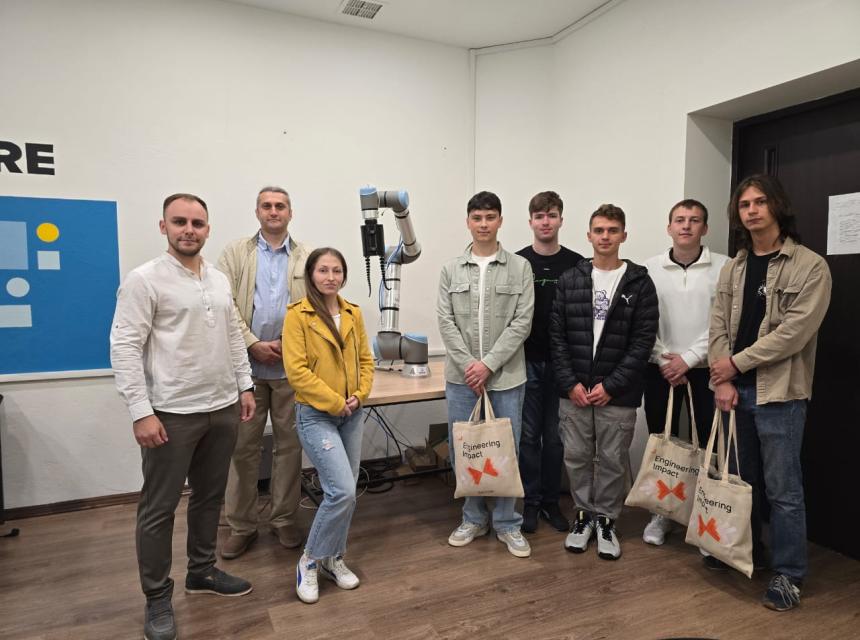The SPIRAL team developed a gripper with tentacles for the universal robot UR10e.
The SPIRAL team developed a gripper with tentacles for the universal robot UR10e.
Fourth-year students from the Department of Computer-Aided Design Systems at the Institute of Computer Science and Information Technologies presented a comprehensive gripper solution for the Universal Robot UR10e.
The gripper is made in the form of octopus tentacles. Its main advantages are versatility, as the device can adapt to objects of various shapes and sizes, unlike rigid “finger” or vacuum grippers. Soft grip - the tentacles grasp the object delicately, which allows you to work even with fragile or non-standard parts. Flexibility of movements - the tentacles can move in many directions, grasping the object from different sides.
According to the students, this task was not easy from the beginning, as they had to do everything from writing code and modeling to developing the hardware and testing with real objects. The team fully developed a 3D model of the gripper and printed most of the main elements on a 3D printer.
"At the first stages, we distributed roles, which gave an understanding of who would be responsible for the operation of the system, modeling the tentacles, and who would create the control interface and write the code. Despite all the challenges, we are satisfied with the result and are already thinking about continuing the implementation of the idea," shared Arsen Buldyak, Bohdan Sukhenko, Balan Denis, Nazariy Khromyak, and Nestor Fedyshyn.
The idea originated during a hackathon organized by students of the SAP department in collaboration with GlobalLogic, a company. This idea interested the company GlobalLogic, which invited the students to develop a full-fledged PoC of the project. Having received the necessary support to implement the idea, the team worked on both the hardware and software components during the summer, conducted modeling, and carried out tests in the robotics laboratory of Tech StartUp School.
"We worked synergistically, and this was the key to success. Students actively studied and mastered modern software tools in order to implement the project as effectively as possible. Such a model of cooperation is extremely important because it promotes the practical application of knowledge and the development of their potential in various areas,” shares the team mentor, Volodymyr Gavran, assistant professor of the Department of Computer Science.
Cooperation in this format is important because it promotes the transition of students from theoretical knowledge to the practical implementation of projects and fosters critical thinking skills in solving complex problems.

